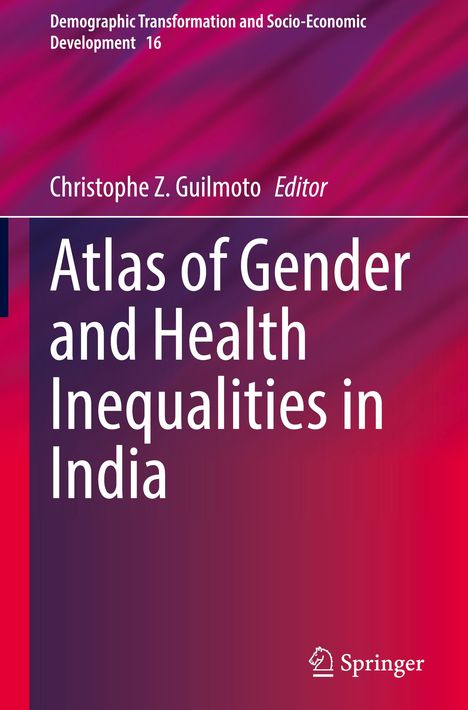Atlas of Gender and Health Inequalities in India
Atlas of Gender and Health Inequalities in India
Buch
- Herausgeber: Christophe Z. Guilmoto
lieferbar innerhalb 2-3 Wochen
(soweit verfügbar beim Lieferanten)
(soweit verfügbar beim Lieferanten)
EUR 131,42*
Verlängerter Rückgabezeitraum bis 31. Januar 2025
Alle zur Rückgabe berechtigten Produkte, die zwischen dem 1. bis 31. Dezember 2024 gekauft wurden, können bis zum 31. Januar 2025 zurückgegeben werden.
- Springer Nature Switzerland, 01/2024
- Einband: Gebunden, HC runder Rücken kaschiert
- Sprache: Englisch
- ISBN-13: 9783031478468
- Bestellnummer: 11728285
- Umfang: 276 Seiten
- Nummer der Auflage: 24001
- Auflage: 1st ed. 2023
- Gewicht: 582 g
- Maße: 241 x 160 mm
- Stärke: 21 mm
- Erscheinungstermin: 2.1.2024
- Serie: Demographic Transformation and Socio-Economic Development - Band 16
Achtung: Artikel ist nicht in deutscher Sprache!
Klappentext
How will the world's largest population approach its inequality challenges? This volume addresses this question by unraveling different strands of India's emerging health and gender geographies. It is the first book to offer a comparative study of these disparities in India, stressing the deep interaction between health challenges and patriarchal features. Most themes explored in this book illustrate the entangled nature of the social and regional determinants of gender and health imbalances in India.Through its rich cartography of contemporary India, the book represents the first Atlas exploiting district-level figures drawn from the latest sociodemographic survey conducted in 2019-21. After an initial methodological synopsis, the book is built around twenty chapters illustrated by 75 original maps, figures, and tables prepared by thirty authors and concludes with a synthesis of India's spatial patterns. Chapters engage with major themes of gender and health inequalities and explore an array of innovative indicators such as access to menstrual hygiene, cesarean deliveries, health insurance, son preference in fertility, female landownership, patrilocal systems, hypertension, anemia, hysterectomy, girl-only or single-child families, or traditional contraception. Together, they provide an often surprising glimpse into the present and future of India's gender and health landscape, highlighting the considerable progress accomplished over the last two decades alongside persistent gaps and emerging issues.

Atlas of Gender and Health Inequalities in India
EUR 131,42*

